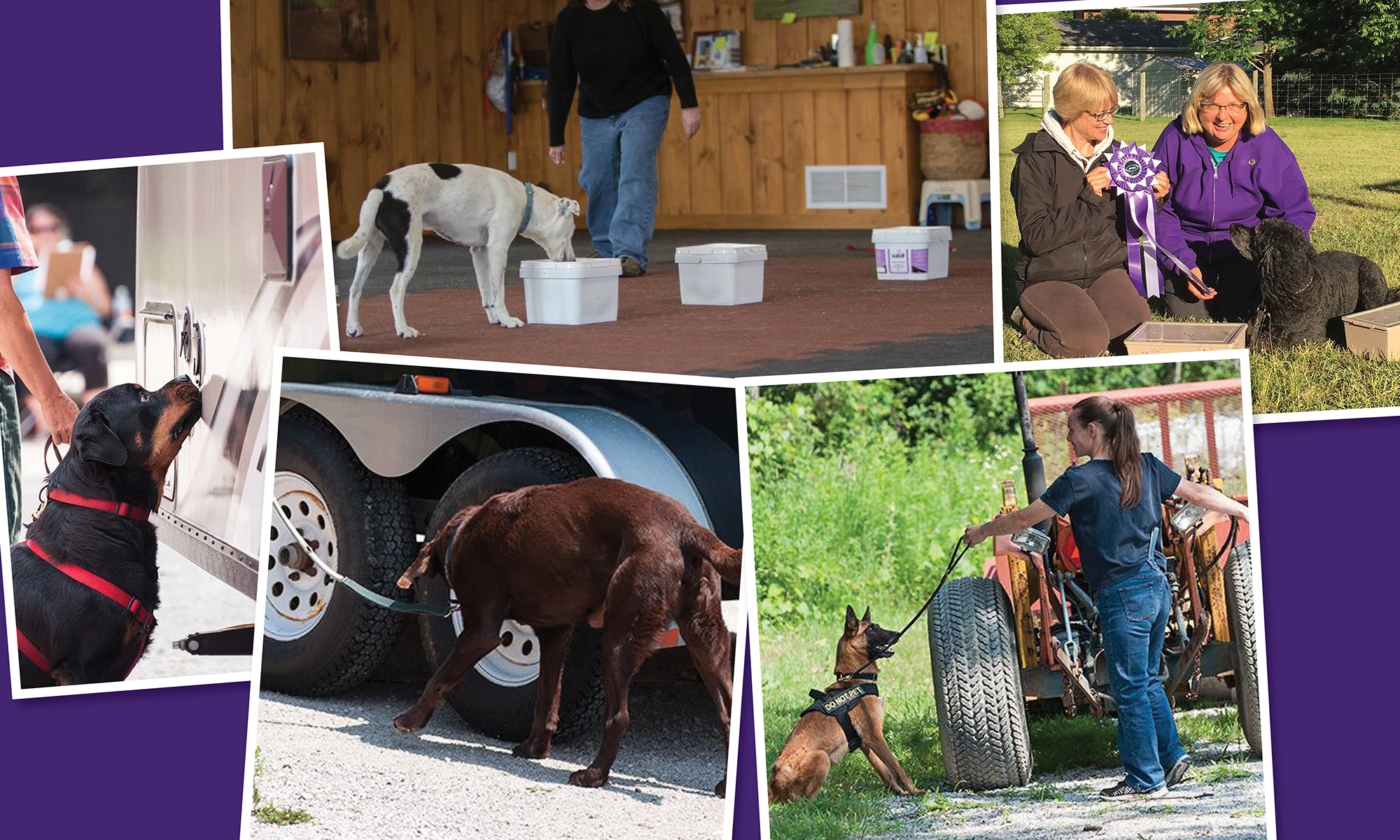Rule Book Changes July 1, 2022
Page 9
Dog deductions include:
- Lack of focus/distracted
- False alerts (uncalled by the handler)
- Passing the hide due to lack of commitment or focus
- Disregarding handler direction
- Noticeably damaging or opening up the hide
- Lack of or poor formal alert in Advanced, Excellent and Elite
Handler deductions include:
- Handler not reading dog (eg. pulling dog off odour)
- Poor control of dog or leash
- Inconsistent search sequence
- Rough commands or handling
- Unduly contaminating the hide or the search area
- Picking up or moving a search item without permission from the judge
Page 10
Under Eliminations
- Striking, kicking or otherwise aggressively handling a dog or any handling that is considered abusive or inhumane in the opinion of the judge or host
- Harassing or abusing any event official or competitor
- Discussing with other competitors the location of a target odour or clear areas
- Aggression by the dog towards the judge or other officials
- Extreme lack of control of dog
- The unofficial use of trial scents on the trial grounds by a handler
The Judge and/or host may dismiss any dog and/or handler from the trial site for cause. Further, an officiating Judge may unilaterally dismiss a handler and/or dog from the trial for abuse or aggression. If any such action is taken, a report must be submitted to the Discipline Committee, using the Incident Report Form found on the SDDA website.
Page 11
If hides are placed closely adjacent to one another in an area or vehicle search, they must be at least 91.4 cm (3’) apart and be different odours. For example, Pine and Thyme.
Page 15 (moved to 18)
Games Champion – SD-GCH
Titles (3 passing scores) in any three (3) games. Eg. Titles in Distance, Aerial and Team.
SD-MACH*, SD-ELCH*, SD-GCH2 and SD-GMACH*
MACH, ELCH and GMACH may be earned multiple times. The title initials will be followed by a numeric designation indicating the number of times a dog has met the requirements of the title as defined above. (eg. SD-MACH2)
Page 16
Under Aerial
- Containers should be suspended from 1 to 3 ft apart.
Page 21 (moved to 22)
Alert (Formal alert) – a distinct behaviour that is easily observable by the judge and is performed at a hide location. The behaviour should be performed as close to the hide as is possible for the dog and the accessibility of the hide and without damaging the hide. No points are lost if the dog’s trained alert moves it away from the hide (eg. downing at a high hide) as long as it is clear the dog has identified the source of the odour prior to the change of position. Typical formal alerts include: sit, down, nose point/freeze. Other distinct behaviours are acceptable, particularly in an elderly or disabled dog.
Page 22
Applying for an SDDA Event
Hosts should fill out the relevant trial application form (found on our website) in full, listing the judge(s) and venue(s) that have been booked and all contact information. Every effort should be made to confer with the judge to ensure that the trial venue is appropriate for the levels and components offered. The SDDA executive is also available for consultation on site suitability.
This should be submitted to the SDDA for approval a minimum of 60 days prior to the trial date.
Once approved, the date and location will be posted on the SDDA website and hosts must prepare a Premium List with entry form which can be distributed publicly no sooner than three (3) days after the publication of their trial Premium. This is so that SDDA Registered Participants can be given priority notice of the trial date(s), location, levels, components and judge(s) via email. Hosts may accept entries in any reasonable and fair manner they choose, but may not prioritize by number of components entered.
The revised Rule Book is available for download on the SDDA website.

